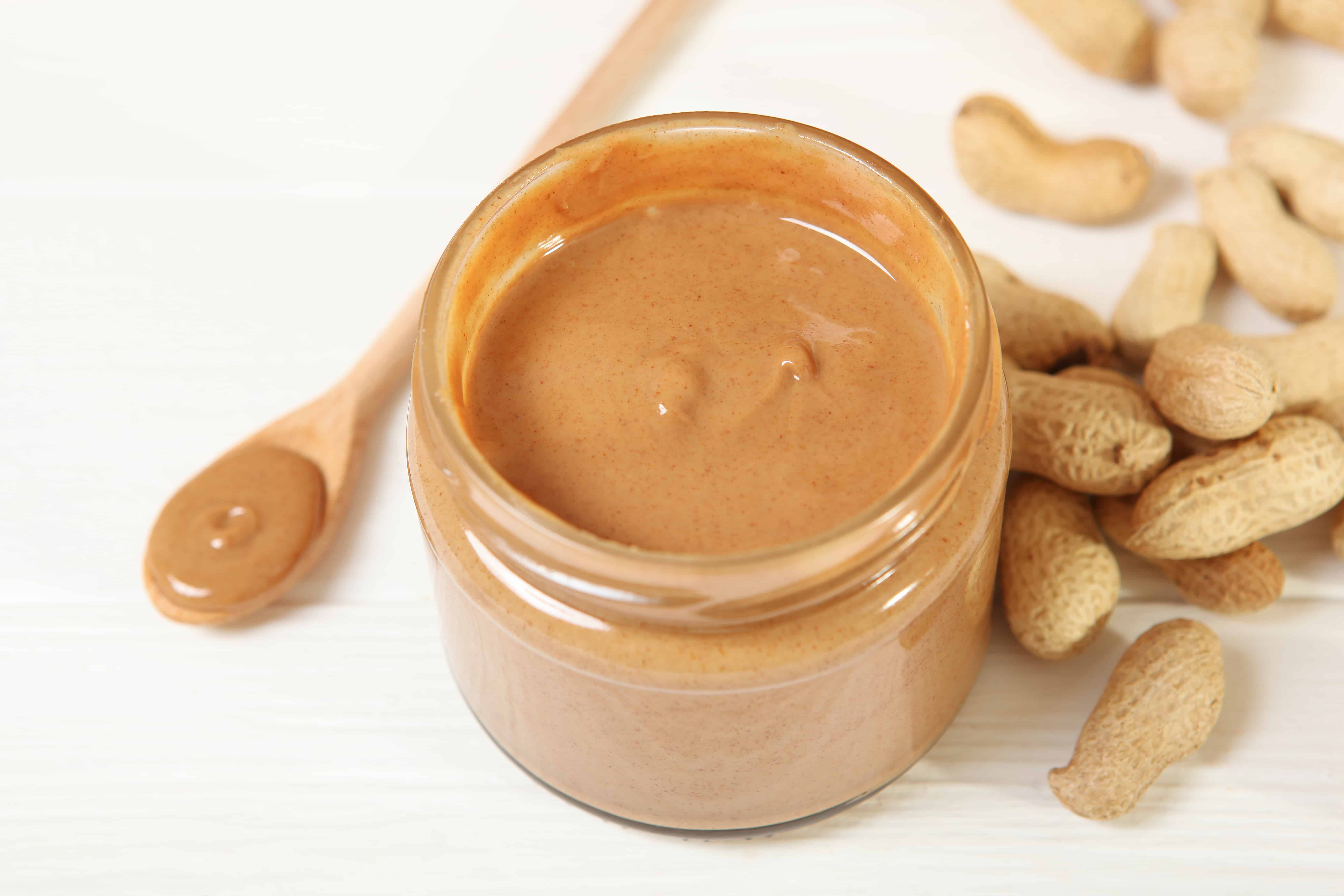If you’ve ever tried making your own nut butter, you’ll know there really isn’t much to it. (If you’ve never tried this before, grab a blender and go for it! It’s a great way to see the process — and taste the results, too.)
In its simplest form, peanut butter is just a bunch of peanuts ground into a paste.
However, some types of peanut butter go through more mechanical and chemical processing. This is typically done to achieve a certain flavor or texture and to avoid having the peanut oils separate as they would naturally. Some peanut butter contains added sugar, added salt, and trans saturated fats, too.
But the shorter the ingredients list, the better! Since pure, organic peanut butter is mostly unprocessed, all of its nutritional goodness is left intact.
We already know (and love!) what it does to our taste buds; let’s dig a little deeper into the health benefits of peanut butter to see what’s inside and how it interacts with our bodies.
But First, a Note on Calories and Allergies
Peanut butter delivers quite a few calories. A single two-tablespoon serving of pure peanut butter contains 191 calories to power you through until your next meal or snack.

If you’re following a 2,000-calorie diet and you accidentally binge on a whole cup-and-a-third of peanut butter, you’ll have maxed out your recommended dietary allowance (RDA) for the day. Yikes!
Because of the relatively high-calorie content, peanut butter is best enjoyed in moderation.
However, it can’t be enjoyed by everyone, everywhere. An estimated 2% of children and adolescents in the U.S. have a peanut allergy — that’s 1.2 million kids and teens experiencing the most severe food allergy out there.
Since 2017, the National Institute of Allergy and Infectious Disease (NIAID) has recommended early exposure to peanuts as a preventative strategy, but once an allergy has developed, it won’t go away. To be safe, talk to your child’s doctor about peanut exposure before attempting it.
Although the exact cause of peanut allergies remains unknown, hypoallergenic peanuts may be on the horizon. These beloved legumes are so nutrient-dense that researchers are working hard to develop an allergen-free version available to all.
Our 5 Fave Nutrients
A single-serving scoop of peanut butter pretty much has the whole package. It contains all three macronutrients (carbs, proteins, and healthy fats) the body needs in larger quantities, plus an array of micronutrients (vitamins and minerals) the body needs in smaller amounts.
Here are five nutrients that make peanut butter one of our favorite good-for-you ingredients.
1. Micronutrients
According to the U.S. Department of Agriculture, two tablespoons of smooth, unsalted peanut butter contains 179 milligrams of potassium, 15 milligrams of calcium, and 54 milligrams of magnesium, which is 14% of the RDA. It also contains traces of other minerals such as manganese, zinc, copper, and thiamin along with Vitamins E, B3, and B6.
2. Antioxidants
Raw peanuts already contain antioxidants that block out cell-damaging free radicals, but research has shown that roasting can actually increase antioxidant levels by 22%. This makes peanut butter as antioxidant-rich as some fruits.
3. Protein
Peanut butter is packed with plant-based protein. Each serving delivers 7 grams of protein, which is an essential energy source and building block in the body. This is why it’s the first ingredient in our original Perfect Bar recipe!
4. Carbohydrates
A relatively low-carb option, one serving of pure peanut butter contains 7 grams of carbohydrates, including 1.6 grams of fiber, a complex carb that helps your body absorb micronutrients and sugar. Speaking of sugar, peanut butter also has a low glycemic index value that helps your blood sugar levels remain steady.
5. Unsaturated Fats
While a serving of peanut butter contains 16.4 grams of fat in total, 80% are unsaturated fats. This includes eight grams of the monounsaturated fat oleic acid (omega-9) and four grams of the polyunsaturated omega-6 fat, linoleic acid.

Long-Term Peanut Butter Benefits
Pure, better-for-you peanut butter has also been linked to a range of long-term health benefits and disease prevention effects.
Scientific studies have linked peanuts and peanut butter consumption to reduced cholesterol levels. A dollop a day can promote a heart-healthy approach, reducing the risk of cardiovascular disease and high blood pressure.
Peanut butter is also great brain food since it’s rich in protein and antioxidants. Due to its low glycemic load and ability to keep blood glucose levels steady, it’s typically recommended for people with Type 2 diabetes as well.
Additionally, the fiber and healthy fats in pure peanut butter can help you stay satiated and achieve a favorable body weight.
Next time you reach for the jar, remember to pick pure, organic peanut butter and enjoy it in moderation. Feel free to whip up ants-on-a-log or a modified PB&J with whole-grain bread and fresh berries instead of jam.
Or, satisfy your sweet-and-salty cravings with Perfect Snacks. We’ve created our Dark Chocolate Chip Perfect Bar, Peanut Butter Cups, and Perfect Bar Mini & Snack Size so the whole family can enjoy nutty goodness on the go!


